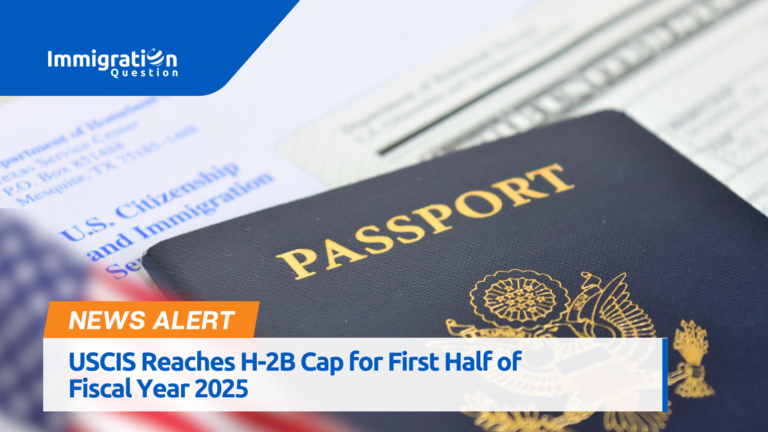Introduction
On July 26, President Biden announced that he had granted Deferred Enforced Departure (DED) status to people from Lebanon who are currently residing in the United States. This decision allows those who qualify to stay in the US for the next 18 months without the threat of being sent back. The official statement from President Biden is available here.
The President has the power to label a country for DED because of situations in that country that temporarily make it unsafe for its citizens to return home, like wars and natural calamities. During this period, individuals who have been granted DED status are protected from being removed from the US by the Department of Homeland Security (DHS), and they are also eligible to apply for an Employment Authorization Document (EAD).
Brief highlights of the Lebanese Deferred Enforced Departure (DED)
The US government has chosen people from Lebanon for a special program called Deferred Enforced Departure (DED). This program stops some Lebanese people from being sent back to the United States for 18 months and tells the Department of Homeland Security to let these people work legally for 18 months. Additionally, the US government is looking into making it easier for Lebanese students studying in the US to work. Details about how this will work will be shared soon.
What is the Deferred Enforced Departure (DED)?
Deferred Enforced Departure (DED) isn’t a set immigration status, but rather a special kind of protection that only presidents can give out as part of their job in dealing with other countries. It is used in pretty rare cases. People with DED aren’t at risk of being sent out of the US for a while, and they can usually ask for permission to work during that time.
Even though it is kind of like Temporary Protected Status (TPS), DED isn’t a way to get immigration benefits, and you can’t just apply for it. If you fit the criteria, you are automatically given DED until it expires or gets canceled. To get a work permit through DED, immigrants who qualify need to fill out the necessary forms and pay the required fees.
Right now, DED is available to Palestinians, Liberians, and people from Hong Kong. According to the president’s order, some people from Lebanon who were in the US on July 26, 2024, and haven’t left since then might get DED. However, Lebanese people who go back to Lebanon, commit crimes, or pose a threat to national security, among other reasons, might not qualify for this program.
The Department of Homeland Security will share more details about who gets the designation and how to apply for a work permit through DED.
More details on the Lebanese DED
President Biden has stopped some people from Lebanon from being sent out of the US for 18 months. He made this decision with a memo of July 26. The memo says that it is important to let these people stay because the situation in southern Lebanon is really bad because of fights between Hezbollah and Israel.
The President wants the Department of Homeland Security (DHS) to do what it needs to do to keep these Lebanese in the US who have been here. The memo also tells DHS to let these people work while they are staying and to consider giving them more job chances.
President Biden made this memo while Israeli Prime Minister Benjamin Netanyahu is visiting the US. The American President had a chat with him on Thursday, pushing him to wrap up the ceasefire deal so they can get the hostages back and end the Gaza war for good.
Some Lebanese who will not benefit
The memo lists a few exceptions for the Lebanese who will enjoy the DED:
- Lebanese who chose to go back to Lebanon after the memo was made;
- People who haven’t been living in the US continuously since the memo was made;
- People who can’t get into the US because of they are inadmissible or are deportable under relevant provisions of the Immigration and Nationality Act (INA);
- People who have been convicted of a crime or two or more misdemeanors in the US, or who fit one of the criteria in Section 208(b)(2)(A) of the INA;
- People facing an extradition request;
- People staying in the US that isn’t good for the US or is a danger to public safety;
- People whose being in the US could really mess with US foreign policy.
To stay updated and informed, keep an eye out on our news section on news room










